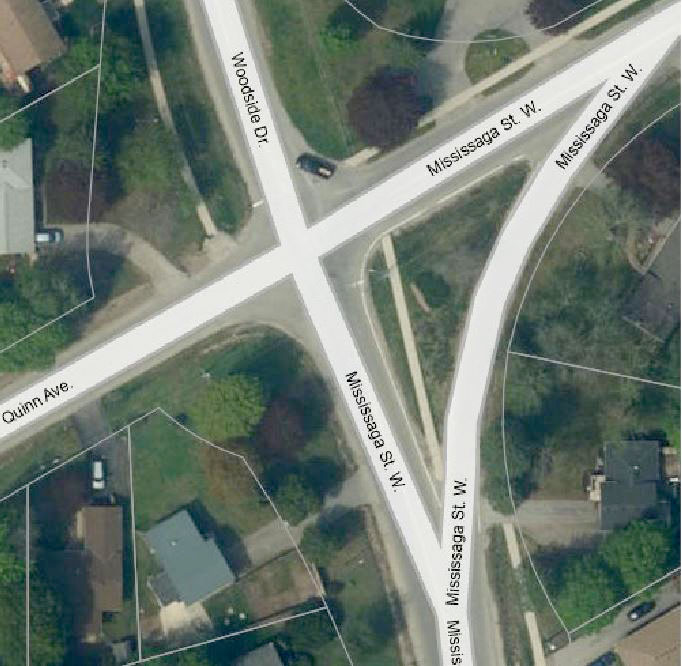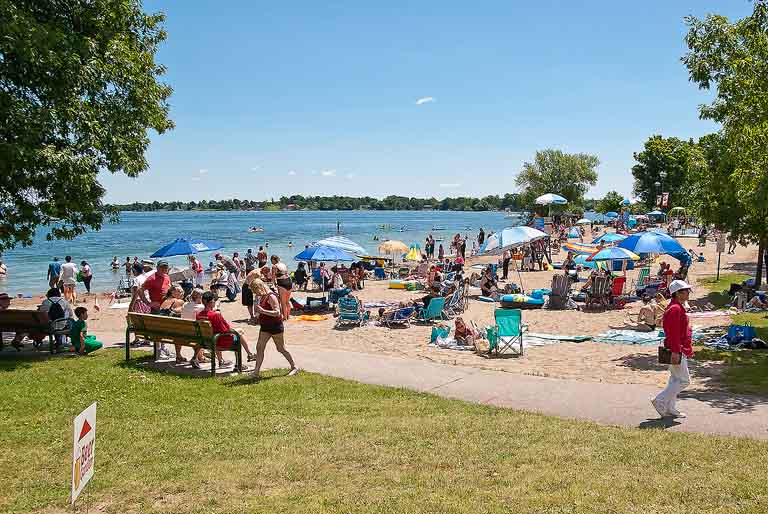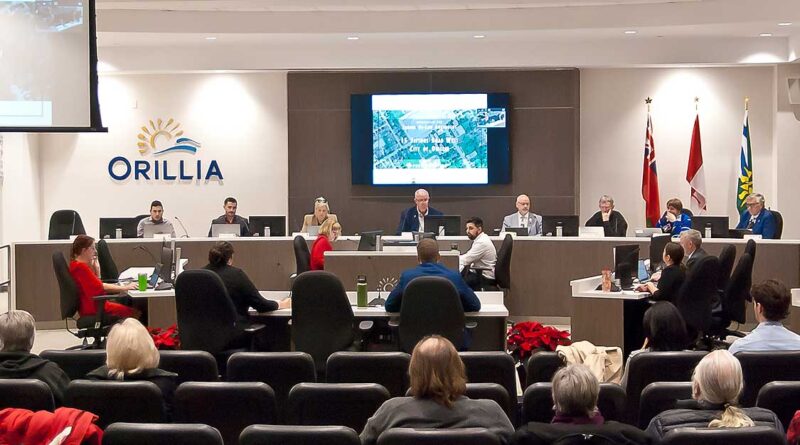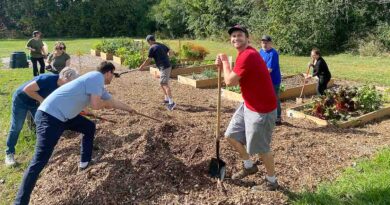Council Preview
By John Swartz
Monday’s 2 p.m., September 23 council meeting begins with a special meeting for tax appeals. It is usually the case the treasury is getting council to approve writing-off taxes on properties as uncollectable for a number of reasons like buildings no longer existing, or changes to taxation status.
Buildings no longer existing is the reason given for 7 of the 24 cases on the agenda. Becoming tax exempt (i.e. taxation status) is given for two properties. One of those is for $19k. It used to be addresses were given so residents would know what is happening. This report does not have that information so determining what property became exempt for that much money is not available. The write-offs include the education taxes.
When that meeting is finished council will go right into the regular agenda. Top of the list is a deputation from Rob Baldwin, chief administrative officer of the Lake Simcoe Region Conservation Authority. He will address council to outline the LSRCA’s programs, services, and legislative requirements.
Orillia is not a member of the LSRCA, so this appearance, judging by the content of the Powerpoint presentation is a sales pitch. Conservation authorities have permitting powers (another layer of approvals for development). They do provide a number of services to municipalities, which from time to time the City has used and paid fees for. But, the City has resisted becoming a member of the authority to date.
The city does observe good practices for protection of the lakes and watershed and does participate alongside the LSRCA in advocating with next levels of government. The City also has adopted into its official plan and zoning by-law many of the same stipulations as the LSRCA has. Previous councils have determined the benefit to residential taxpayers against the cost does not add up. Orillia is the only municipality on Lake Simcoe which is not a member of the LSRCA.
When that and the public forum conclude, council will move to closed session. There is one item on that agenda, and that is regarding the LSRCA.
Back in public, the first report is from councillors Jay Fallis and Jeff Czetwerzuk about the Garage Sale Day the City organized. The idea was for people to have their garage sales on one day and to make donations to the City’s affordable housing reserve as a percentage of sales they made.
The councillors report 100 garage sale participants and $4,500 was donated.

Next is a report from the accessibility advisory committee to have staff prioritize improvements at the intersection of Mississaga Street West, Quinn Avenue and Woodside Drive.
From a pedestrian perspective the intersection is disjointed and sidewalks do not continue from one side to the other. The committee would like physical improvements to be included in road and sidewalk planning and to have signs warning the disabled the side walk does not continue.
Our Ongoing Drug Problem
Next is a report from the opioid crisis working group with an update on their activities? They want council to forward to the 2025 budget a request for $100K to establish a community connection centre with system navigation.
There are two points to illuminate. One is regarding the perception of who the addicts are. It has been established most people became addicted to street drugs when controlled/prescribed medications for pain relief are yanked away from them. They have already become addicted and turn to the black market when legitimate means of medication are taken away. Without the control of the health system things spiral to unmanageable levels for themselves and the communities they live in.
Second, the crisis is a result of failed policy and financial commitment from the province and federal governments. This forces municipalities with fewer resources to deal with the aftereffects of that failure.
The direction the working group wants to take is to partner with the several agencies that do work in this area, though with different mandates (i.e. mental healthcare, rehabilitation, homelessness, etc.), and to centralize the service accessibility to one location.
The working group has already petitioned Ontario’s associate minister of mental health and addictions, Michael Tibollo for funding for detox beds, treatment beds, mental health and counselling services, coordinated access to mental health and addictions counselling, and harm reduction. A good portion of those supports are available in Barrie, which of course, presents its own set of barriers to those who are addicted. They also asked for financial support for the proposed community connection centre.
Referral Reports
The agenda has two items resulting from council referrals. One is for staff to report on allowing overnight parking in municipal lots during the winter restriction period.
Staff recommend designating spaces in lots connected to Walter Henry Park (3 spaces), West Ridge Park (3), and Clayt French Park (4).
It is worth noting those areas are all in the West Ridge where neighbourhood layout and zoning provisions did not take into account parking needs and allowed construction of garages too small to park in. Staff say 30% of all parking tickets are issued in the West Ridge.
Staff offer two alternative motions which would increase available permits to 18 more spaces. Permits would cost $375 for the winter restriction season.

Last October council asked staff to report on the reasons for increases in swimming advisories and what can be done about the causes.
The subject header for the report is targeted storm water management strategies, which suggests staff are leaning toward stormwater runoff being a likely source. Staff are asking for permission to do more work on this matter and to involve the environmental advisory committee.
In a report from one year ago, staff reported an almost 40% increase in beach closings in 2023 over the previous 5-year average. A major contributor is a higher amount of heavy rainstorms. Lower lake levels can also contribute, but that is a matter for the management of the Trent Severn Waterway (the data shows increased levels in 2018 when those living on the lakes were complaining about low water levels).
Most postings are related to E.coli bacteria levels, though algae levels are a factor.
The city instituted a storm water charge to water bills several years ago, forseeing the province would be forcing municipalities to treat stormwater in some manner (which has not happened yet). That charge has been used to install 4 oil/grit separators at discharge to the lake points, and two more are planned. It is possible stormwater maybe be not allowed to directly discharge into waterways and be routed through water treatment plants. That would be very expensive.
Again, failed policy toward climate change is forcing municipalities to bear the cost of dealing with the effects. It’s only going to rain more, more often, and in greater levels of intensity (light rainfall is not the issue because water can seep into the ground, while rainfall of biblical proportions just runs to the lowest point – the lakes).
Staff want time to do microbial source tracking. This suggests maybe there is a specific point of origination of the bacteria at issue. Identifying if that is possible and dealing with source contamination may end up being more effective and cheaper.
This new report outlines some strategies and a request to forward to budget committee the recommendations.
Staff want to further assess the function of storm water ponds; flush sewers, address ditches in the Front/Queen Streets area to improve drainage, and improve testing at outlets near Couchiching/Moose/Portage Bay.
The cost of those things is $512K with $400K coming from the capital budget and the rest ftom operating. That will be increased spending, or be at the expense of other services. $300K of that is for assessing the functions of stormwater ponds..
Garbage In…
Staff are proposing a number of increases to fees for accepting items for disposal and recycling at the landfill. Who knew since COVID prices charged to the City would have dramatically increased – along with the price everything else like butter, steaks, clothing and gasoline.
All together, the increased fees are for specific categories of items most households would not be taking advantage of (increases apply mostly to commercial users) and is estimated amount to $85k of revenue.
Safety Zones
The City of Orillia does not have a standard policy regarding imposing community safety zones on drivers. Fines in these zones are usually double than for tickets in other areas.
Instead the City has a patchwork of policies and by-laws as they apply to the existing zones. This new policy is meant to apply standard criteria for considering implementing new zones. It has provision for residents to request implementation.
Show Us The Money
The consolidated 2023 financial statement and auditor’s report is in. A major accounting change affected the statement on the City’s investments. The method went from a cost method to a fair value method. So, while it looks like losses were incurred, in fact the City does not dispose of investments before maturity, so while values might be lower today, the final destination does not change. Regardless, the City is doing very well with it’s investments.
The City had $8.5 million in revenue over budget in 2023. Developer contributions went down $6 million, but all other areas of revenue generation (taxes, grants, user charges, etc.) were up. That said, the total of all spending was $189K over budget.
The accumulated value of the City’s non-tangible assets (revenue) increased by $22 million. The value of tangible (property, buildings, vehicles, etc.) assets increased by $32 million.
Financial liabilities increased by $13 million, but that is as of Dec. 31, 2023. It all depends on when the cheque clears and is no indication those liabilities exist today.
The one area of interest to many is the state of the City’s reserve funds. Over the last 5 years the City has made an effort to mitigated deficits created by borrowing from itself from the reserves rather than increase taxes, which created the impression the City lost money. The reserve accounts value in total increased by $29 million to $114.6 million. This situation was improved by the City slowing down spending from reserves and increasing contributions from the tax levy back into reserve accounts.
In general the City’s financial health is much improved over the sate which existed in the 1990s. Looking at the total statement things are pretty good and one must keep in mind while it may look like there is only $2 in one pocket, the other pocket has $100 in it (as opposed to lint in the 1990s).
The treasury also has a report on expenses charged by council to June 30 in this agenda. The big spender was councillor Luke Leatherdale with $3.5K of expenses. Most of that was for attending conferences. Councillors Tim Lauer and Janet-Lynne Durnford also submitted close to $1,500 each in conference expenses. Mayor Don McIsaac submitted no expenses and Councillor Whitney Smith had the lowest amount ($116) for cellphone expense. The total amount of council expense is $10.6K.
Grant Applications
The City has an opportunity to apply for grants from the province for two recreation projects. In one case they are applying for 50% of a $1 million budget to replace the roof of the Barnfield Recreation Centre. This project is already scheduled and funding identified, so this would free up $500K for other things.
Another application is for up to $1 million to construct a skatepark/playground/pickleball courts at Foundry Park (Orillia Recreation Centre). This project has not been approved or scheduled.
If grants are approved, both projects will move up in the pecking order for the 10-year capital plan and will have to be added to the 2025 budget.
Doing Business
Staff have a number of changes to the policy manual for council to approve. Of the 7 changes, one is a head scratcher and the others are eliminating duplication with other parts of the policy.
Staff are proposing to change the policy regarding renting space for vendors (refreshment vehicles). Essentially they want to abandon the right of refusal to existing lessors for spaces and open yearly rentals to a bid system. They say it’s to get fair market value and to stay on the right side of section 106 of Ontario’s Municipal Act.
Of course there’s a way around some of that given in subsequent sections of the Act.
The issue is getting fair market value for the lease amount. This can be open to interpretation a few ways. One is, if the space does not get rented, there is no income, so if the City sets a price and someone agrees to pay they have met market value. If the rent is too high, there are no takers and we’re back to square one. Also, if such a lease provides annual reviews or increases, say, in step with the consumer price index, the City has covered their posteriors.
Instead staff are proposing to let the lessors set the price by bidding on what they’ll pay. This is giving in to those who say, I want one too, despite that one is already spoken for.
It’s also hard to imagine how a bid system will ensure fair market value, since the City would then be bound to lease to anyone who bids $1 more than an established vendor. (They would make an exception for French’s Stand. That in itself sets up an unfair situation for anyone else who wants to roll in a fry truck in another part of the park.)
If one was to make an investment into a French fry truck, or ice cream truck, why on earth would you do so if next year someone can come along and take your space?
It would make more sense for staff to figure out what a rental is worth and set the price. This is not like a housing market where people desperate for a place to hang their hat will offer $100 more a month than asking price to get a convenient location, or any location.
People can lose their livelihood for the sake of a newcomer who throws money around, and this could lead to a revolving door of vendors, and possibly an attractiveness/quality goal.
Staff pay lip service to fairness, to the newcomer, but don’t give any regard to the fairness to those who are already on the spot. There are ways to go about this in order to keep on top of provincial regulation on giving unfair advantage to business, and it doesn’t seem like this is the one to go with. Being unfair to one party in order to appear fair to another with no skin in the game surely has to rank with cutting off one’s nose to spite one’s face.
Current leaseholders are gong to be happy to learn the City is taking away their ability to plan for their businesses.
It’s Back
A change to the City’s zoning by-law proposed by staff met opposition from council at the September 9 meeting. At issue is giving zoning approval to church properties to permit the use for housing without having to get a zoning change and therefore trigger a public meeting.
The objective is to create more affordable housing, but there is no guarantee new housing would be affordable, especially if the property was sold to anyone else, say, a developer, because the zoning follows the property, not the owner. The change also permits other housing uses, such as long term care and temporary housing.
Council got a two week delay in order to get public input. There is no new correspondence relating to this and staff are presenting the same amendments for council to vote on. That doesn’t mean the motion originally submitted cannot change
Council meetings are open to the public or can be watched on the City’s Youtube channel.
(Photos by Swartz – SUNonline/Orillia)




